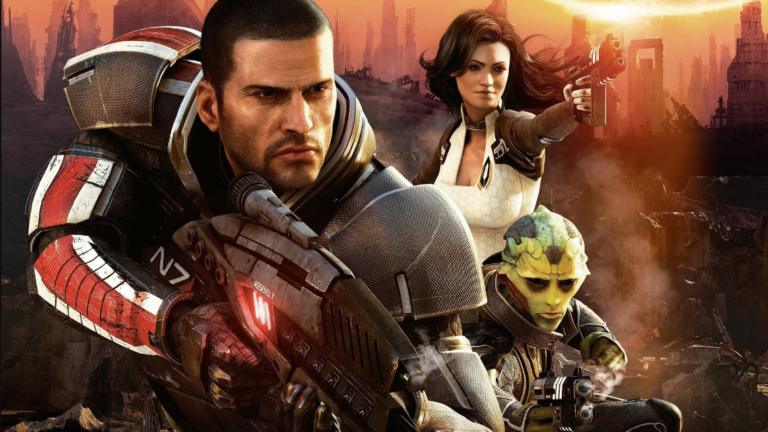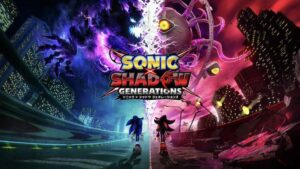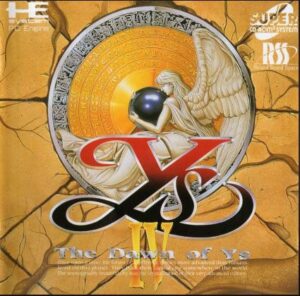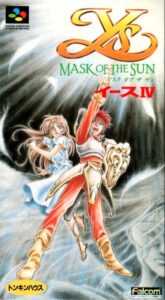And so we find ourselves here… After covering the original Mass Effect I was very eager to revisit the rest of the trilogy, and there was no game I was looking forward to more than today’s piece. Mass Effect was a massive financial and critical success for BioWare and expectations for a sequel were pretty high. Did it live up to those expectations? Let’s dive in and find out. This is Mass Effect 2!
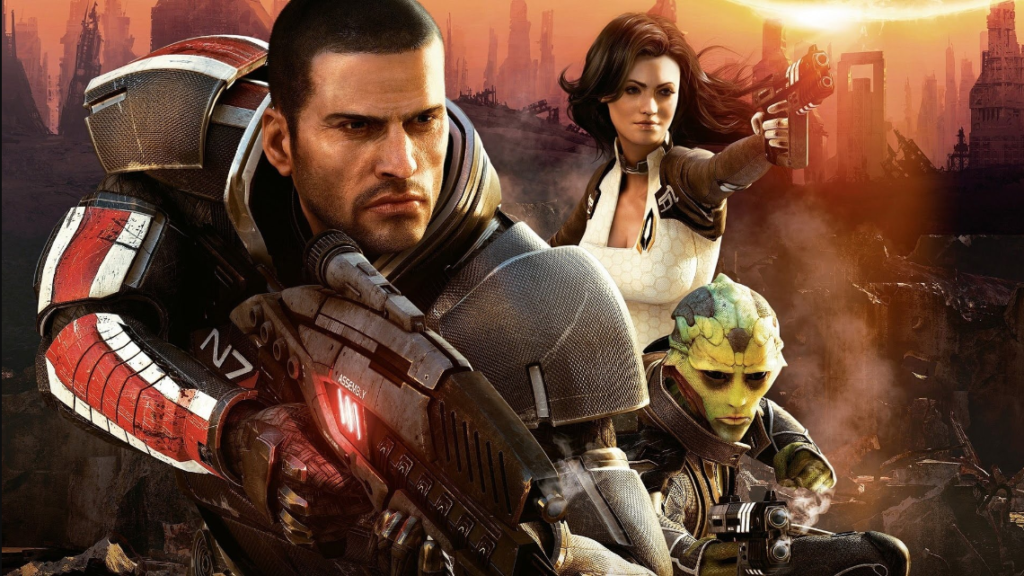
Introduction & Pre-Production
Development on Mass Effect 2 started shortly after the release of the original Mass Effect game. BioWare took seriously the feedback gathered from the original, namely how the gameplay was received and what might be done to improve it. Casey Hudson was hired as project director once more. As actual development began BioWare had a list of goals they wanted to achieve in Mass Effect 2 derived from the first game’s feedback, in addition to objectives laid out by BioWare’s internal staff members.
One of the complaints that was laid at the feet of the original Mass Effect was about the shooting mechanics and how they paled in comparison to the RPG mechanics. To this end BioWare focused on streamlining the improvement of the shooting mechanics, going out of their way to redefine how Mass Effect played for the sequel. Mass Effect 2 brought many things to the table, including an emphasis on cover shooting, unique weapons, ammo management, and much more. At this point BioWare hadn’t had much experience developing shooters, so they had to spend a whole three months of development time fine tuning the shooting mechanics to make them more enjoyable than what was present in the original.
Development of the game was primarily overseen by the BioWare team based out of Edmonton. But over 30 additional staff members from Electronic Arts (EA) Montreal were brought on to supplement the development team’s efforts. Given that Mass Effect was originally planned as a trilogy much of its key development staff remained from its predecessor. Writing was once again overseen by Drew Karpyshyn and Mac Walters who are no longer affiliated with BioWare. The game was produced by Jesse Houston and Nathan Plewes, whilst the team responsible for music composition was the likes of Jack Wall, Jimmy Hinson, Sam Hulick, and David Kates. And finally the programming, art direction, and general design were overseen by David Falkner, Derek Watts and Preston Watamaniuk respectively.
Mass Effect 2 was initially released on January 26, 2010 exclusively for Xbox 360 and Windows PC. Upon the expiration of the exclusivity deal a PlayStation 3 version was released the following year in January 2011. The game was also bundled with Mass Effect 1 & 3 for the Mass Effect Legendary Edition remaster, which was released for Xbox one series consoles, PlayStation 4, as well as Windows PC.
Synopsis & Writing
In Mass Effect Commander Shepard defied the odds and stopped a rogue military agent Saren and his army of synthetics from heralding the return of the Reapers, an advanced machine race bent on wiping out all organic life. This, however inconvenienced the Reapers at best. Saren was not the only agent working on their behalf and now the galaxy must prepare to face annihilation once more. Having lost his ship and crew, and now being left for dead in the vacuum of space, Commander Shepard must captain a new ship and build a new crew and face the greatest threat the galaxy has ever seen.
Mass Effect 2 lets you know as soon as you start the game that this will not be a simple mission. Expectations were certainly subverted when we are introduced to our main villains, the Collectors before witnessing Shepard’s death not even 10 minutes into the game. Following this opening we are treated to a two-year time skip that sees the galaxy as a much different place than when Shepard left it. Both the characters we knew and the locations we were familiar with have changed significantly.
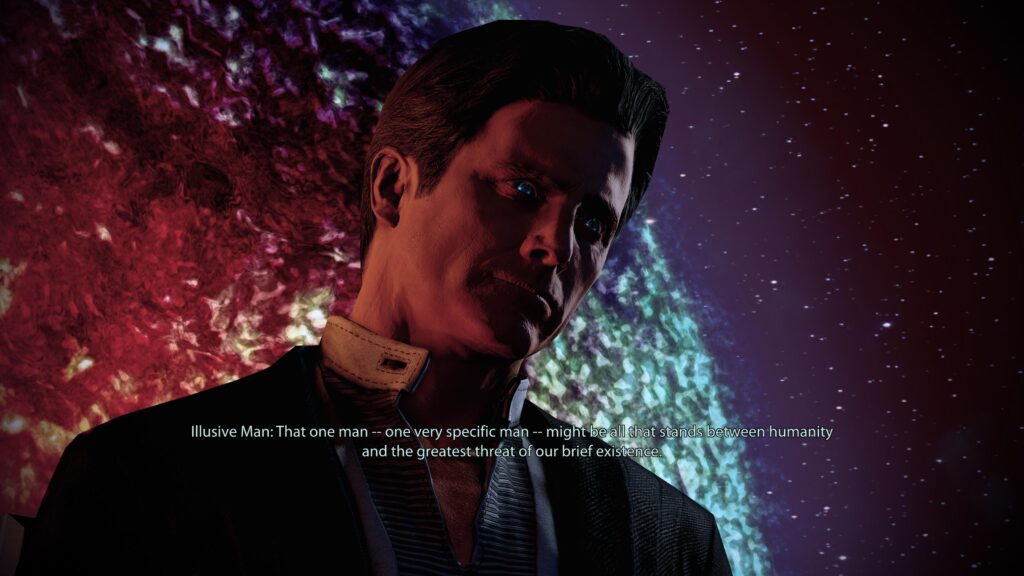
Mass Effect 2 as a story doesn’t designate much time to how the changes in the galaxy affect Shepard as a character. But to be fair that wasn’t something they desired to focus on. Mass Effect 2 differs from a lot of narratives in terms of how it structures the storyline. In many stories the recruitment and building of the main cast is usually finished by the end of the first act with certain exceptions. For example, the original Mass Effect saw you recruit the majority of your companions within the prologue, the exception being Liara who you would recruit on the potentially first planet you visit after getting the Normandy.
However, Mass Effect 2’s narrative at its core is about building the team and securing their loyalty, so that you can take the fight to the Collectors and the Reapers. By taking away all 10 missions dedicated to character recruitment and the 12 missions dedicated to earning their loyalty, Mass Effect 2’s narrative isn’t that long, leaving only eight main missions. And this is by design as the companions are the heart of Mass Effect 2. It’s not to say that a plot doesn’t exist, but the focus of the narrative is always on the characters.
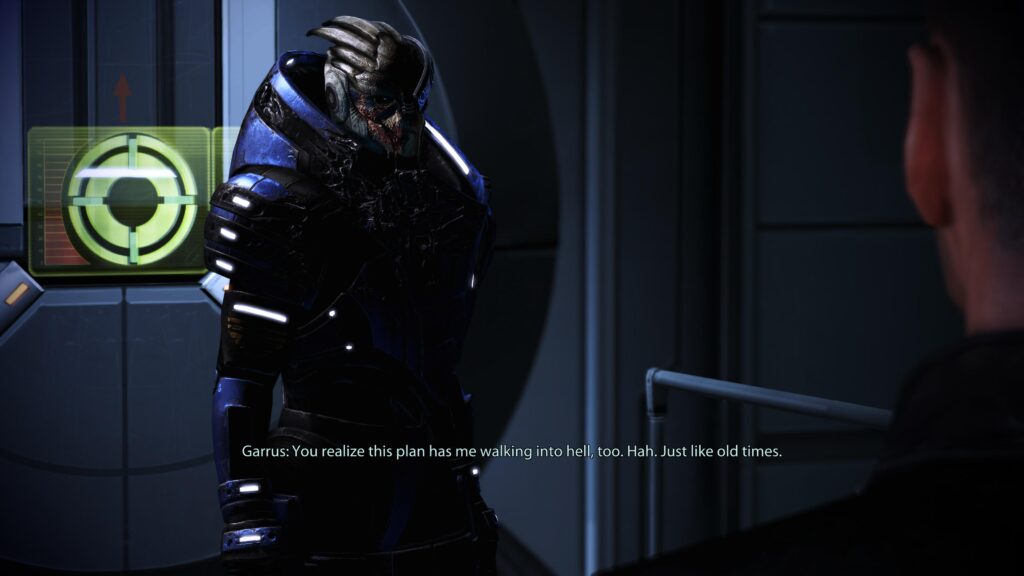
The core themes of Mass Effect 2 remain the trust and brotherhood built among the crew of the Normandy. As Shepard is many things to many different people, with some calling him brother, mentor, paramour, and much more. Many fans might be crestfallen to hear that not all of the original companions return as main characters to their squad, but they still serve roles within the narrative and enrich the universe. I do wish Wrex could help me out like the old days, but he has important work do and his presence serves to advance his character arc and sets up his role in Mass Effect 3.
And it’s not just your companions. You’ll run into plenty of familiar faces depending on the choices you made in the first Mass Effect, which help the world feel alive and that your actions have had weight. Now, while you will sporadically run into familiar faces, not all of them have a direct influence on the plot. Much like the original Mass Effect there are plenty of radio transmissions that report on your various actions in game. True, this is not the best way of acknowledging a player’s actions, but it still shows the galaxy reacting to your actions.
Mass Effect 2 at its core is devoted to its characters and individual character arcs, but this comes at a cost. Having so much of the narrative dedicated to its characters over the main plot means that it leaves much of the universe up to the player’s interpretation. Two years have passed in the universe, but we get very little screentime dedicated to how much it has changed. It is instead relegated to the optional codex, information that provide the context for why things are the way they are.
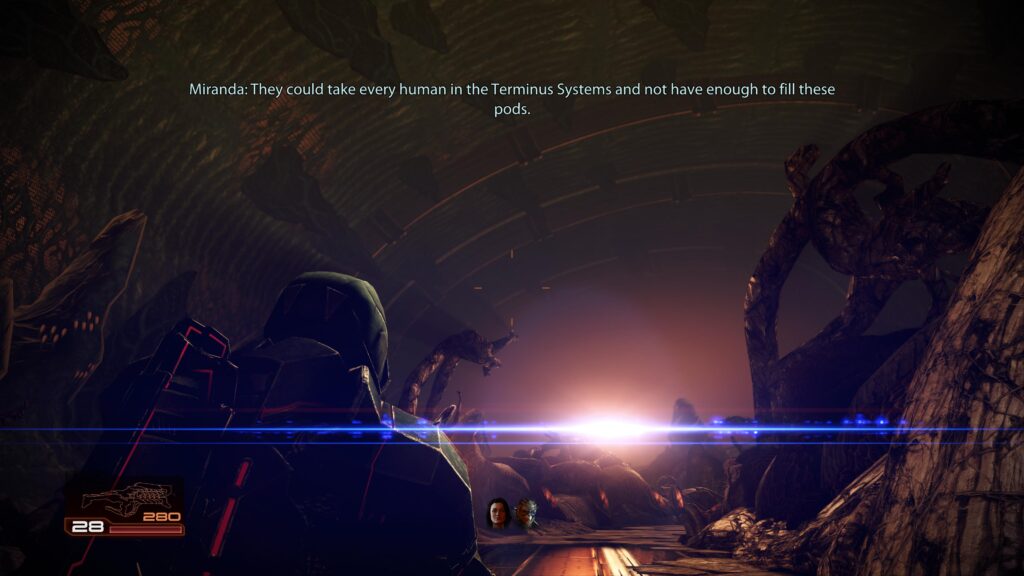
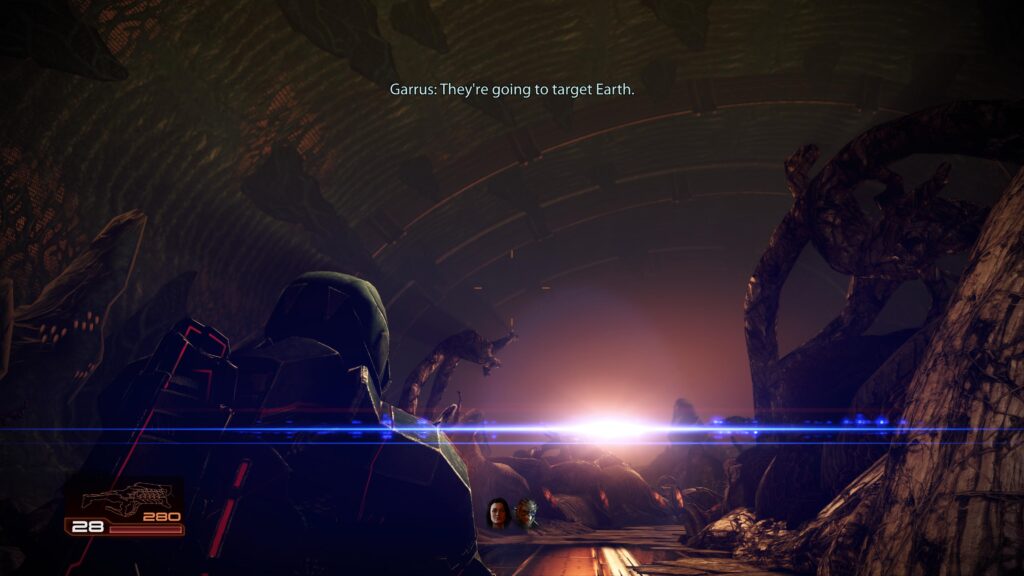
For example autonomous mechs are used to supplement armed forces in response to the manpower shortage in the aftermath of Saren’s rebellion. The introduction of this technology is not treated with much importance, and if you want to learn more about it you will need to spend a large amount of time in the codex. Many had issue with Mass Effect 3 for how much story they tried to pack into that narrative and argued that it should have been split up to make it less dense. As a story the characters in Mass Effect 2 receive the most attention and that usually shouldn’t be a problem, but here I feel that it comes at the cost of the setting. Mass Effect 2 introduces us to so many new locations and characters, and because I enjoy the setting so much I find myself disappointed that they haven’t given us more.
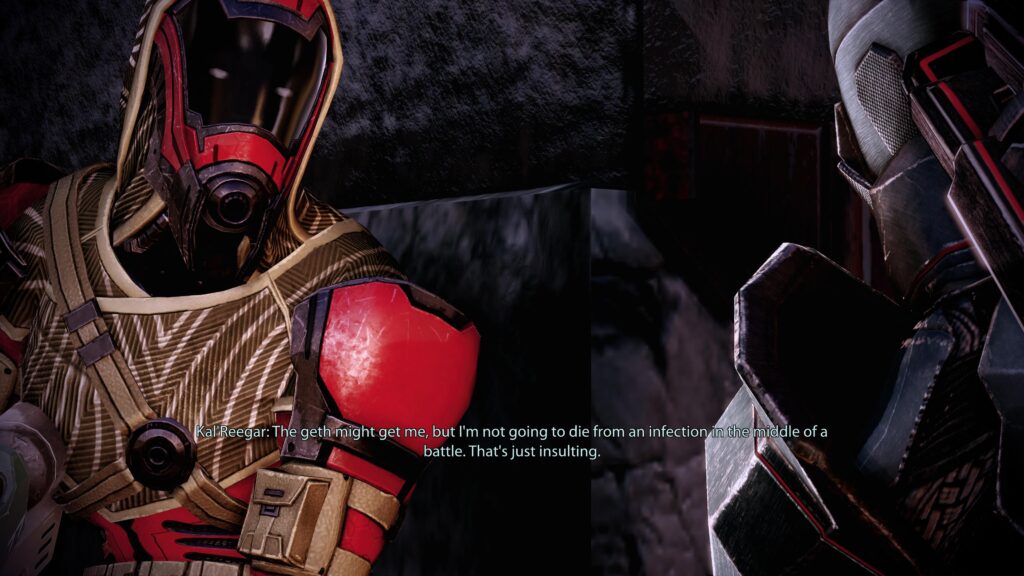
A storyline should be balanced between developing its setting and characters equally and I feel that Mass Effect 2 falls short of maintaining that balance. Curiously enough, Mass Effect 3 seems to have the opposite problem as it dedicates a majority of its time to its settings and leaves its characters out to dry by comparison. When it comes to the story of Mass Effect 2 my gripes are superfluous and come down to my tastes as opposed to the quality of the narrative. Mass Effect 2 seeks to accomplish something very different with its narrative and I feel that it succeeds on that front.
Gameplay
Now, when it came to storytelling and the lore building the original Mass Effect, itwas a masterclass in its composition. However, what did draw criticism was its gameplay, namely how its shooting and RPG mechanics informed each other. True, there were a variety of weapons to use, various powers to keep gameplay fresh, but at the end of the day whether or not you succeeded over your opposition was less about your knowledge of the gameplay sandbox and more about your numbers being bigger than the enemies’. Given that BioWare’s experience at the time was in fine-tuned RPGs, this made a degree of sense. But for the sequel they wished to step outside of their comfort zone by expanding on the shooting mechanics. The RPG mechanics were and remain solid, but they wanted to deliver something that fans of shooters could enjoy.
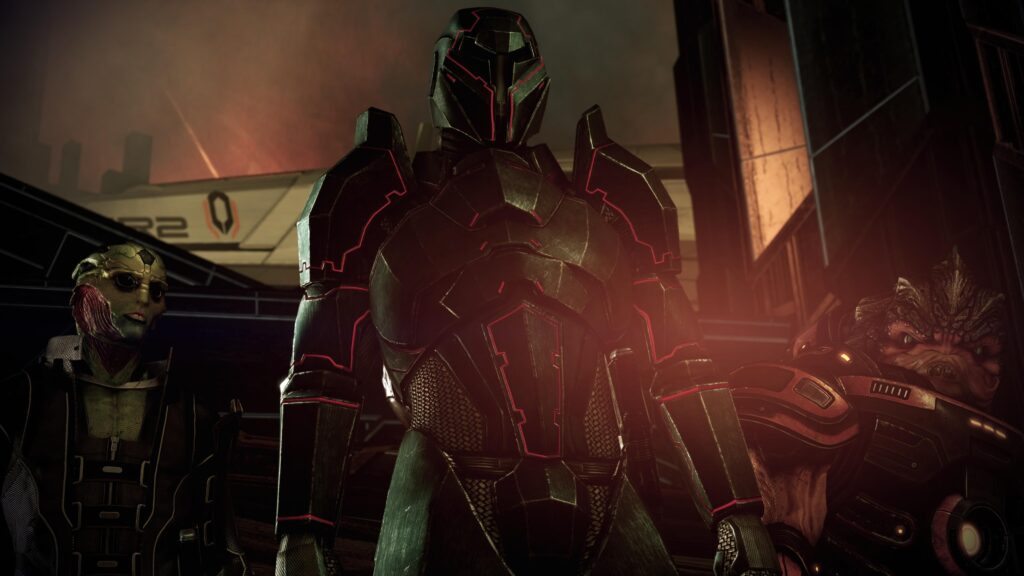
At its most basic foundation Mass Effect 2 is a third person cover shooter, but there is much more going on under the hood. For starters, BioWare severely slimmed down the weapons list, so that each feels unique and offers something different to the sandbox. This is a far cry from Mass Effect where weapons largely behaved the same and all that changed between them was how much damage they dealt. Weapons classes now feel distinct from each other and have their own properties as to how they interact with various types of defenses. For example, rapid fire assault rifles are effective against kinetic shields but less effective against armored foes.
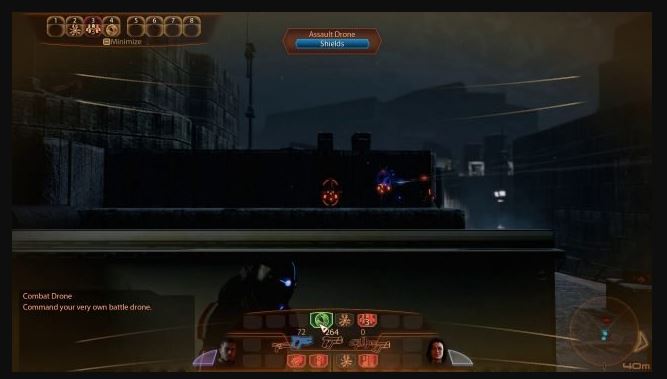
In addition, the divide between classes was given meaningful distinctions in Mass Effect 2. In the previous installment your class had little long term impact on your playthrough as every class could make use of every weapon. Here classes teach their own specific abilities as well as weapon specializations. For example, Infiltrators are stealth-based specialists. Their powers reflect that by bringing abilities like tactical cloak and overload in order to discreetly sabotage the enemy all while remaining at the back with a sniper rifle. The redefining of the gameplay sandbox only served to improve the gameplay of Mass Effect 2 over it’s predecessor.
Naturally, as many adjustments were made on the gameplay side of things, Mass Effect 2 shifted from an RPG with shooter mechanics to a shooter with RPG mechanics. Seeing as it was the shooting mechanics that needed the most refinement coming out of the original game, this seemed like a smart move. In the original game you could largely get away without paying much attention to shooter-based strategies, like using cover or squad commands, unless you played the higher difficulties. Mass Effect 2 changes this wholeheartedly as it makes the shooting mechanics just as refined as the RPG mechanics.
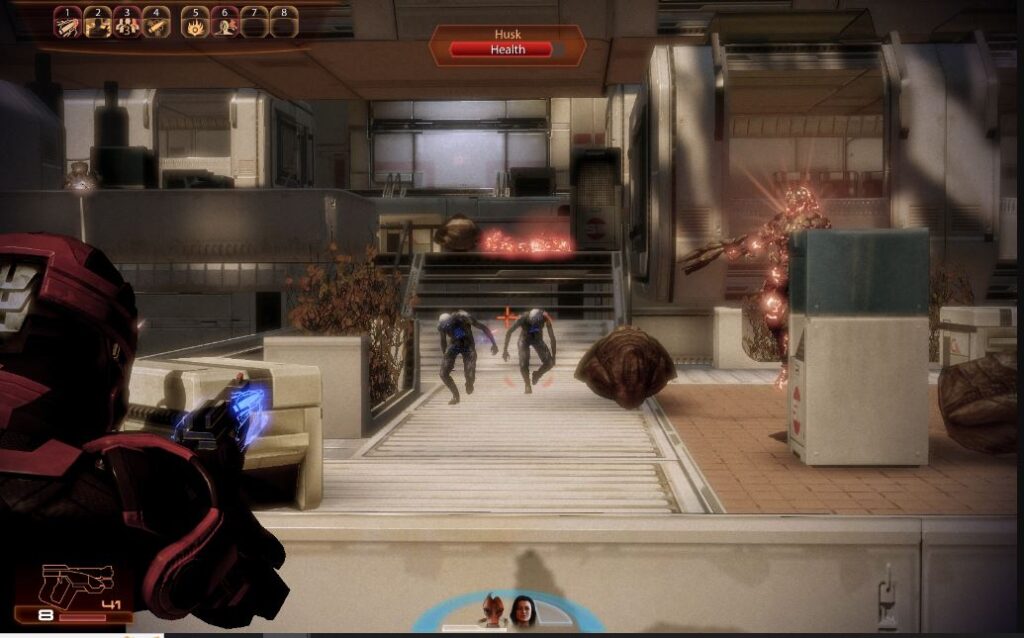
Now, the an emphasis on shooting brought a number of changes that affect the minute-to-minute gameplay. The game now places an emphasis on taking cover and shooting from cover. You can of course choose not to take cover, but your weapon accuracy improves when firing from cover as well as having a physical barrier between you and the opposition. Additionally, weapons now actually have ammo. In the first Mass Effect there werelore explanations for why weapons didn’t have ammo and merely overheated. Mass Effect 2 again provides an explanation for this as when weapons overheat they have to expel that overheated clip and insert a new one to continue firing. This brings ammo management into the gameplay loop and makes firefights more interesting.
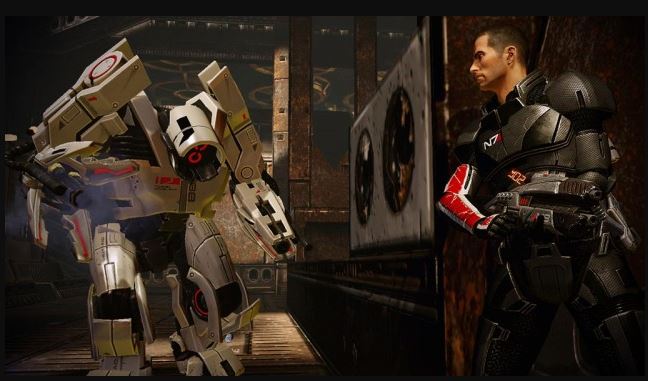
Mass Effect 2 made a key change from the original game as to how experience is gained. In the original game, experience and subsequent levels were gained in real time, but in Mass Effect 2 experience is not awarded to the player until the end of a mission. Weapon upgrades were something that were in abundance and ranged in level and effect. This game opts for a fixed amount of upgrades that boost things like weapon damage, damage done by powers, or opens up additional heavy weapons for use on missions. Upgrades are found in a variety of places, either purchased in shops or found during missions.
I’ve talked about a lot of the good changes that the sequel brought to the fold, but let’s now talk about some of the more tedious aspects. Mass Effect 2 brought a sense of micromanagement to the game as you now have to purchase starship fuel and survey probes, something you didn’t have to worry about in the original lore as your mission was officially sanctioned and bankrolled. That is not the case in this game as you are effectively an outlaw. The part of Mass Effect 2 that people often criticize is the mineral scanning. Upgrades can be purchased with standard credits but must be developed with minerals found through scanning.
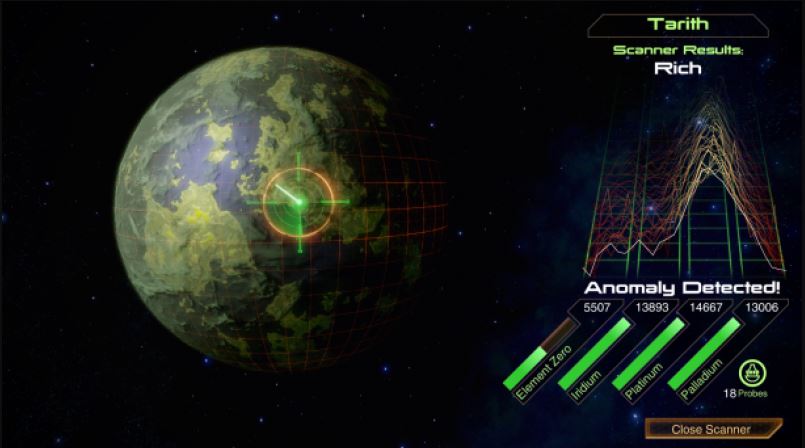
Mineral scanning at first glance appears optional, but without it you lack the materials to develop upgrades that actually affect the ending you get. Without them, characters will die off and if that happens you’re getting a bad ending. Mineral scanning isn’t terrible, but it is the most tedious aspect of the game, which many people don’t look forward to.
Presentation & Score
The score was once again overseen by Jack Wall whose notable work included the original Mass Effect as well as Jade Empire. The sound team composed around 180 minutes of music and the tone was intentionally set to be darker and more mature compared to the original game. The music has been released in several albums over the years.
When it comes to sound design Mass Effect 2 once again improved the game on every front, the guns are visually distinct and have a satisfying sound loop. This game released plenty of DLC and the Legendary Edition remaster bundled them all into the base game, which included the plot expansions, such as Lair of the Shadow Broker, Overlord and Arrival, along with the extra companions and the bonus weapon packs.
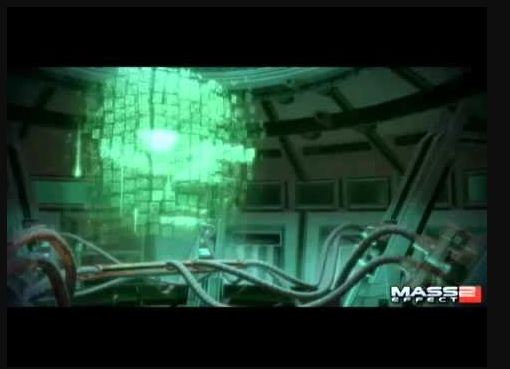
Being released on January 26, 2010 it was the second bestselling game to be released during the month of January, right behind New Super Mario Bros. Wii. The game also received glowing critical praise from fans and critics alike. The game sits at rank 23 out of the top 30 highest ranked games of all time on Metacritic.
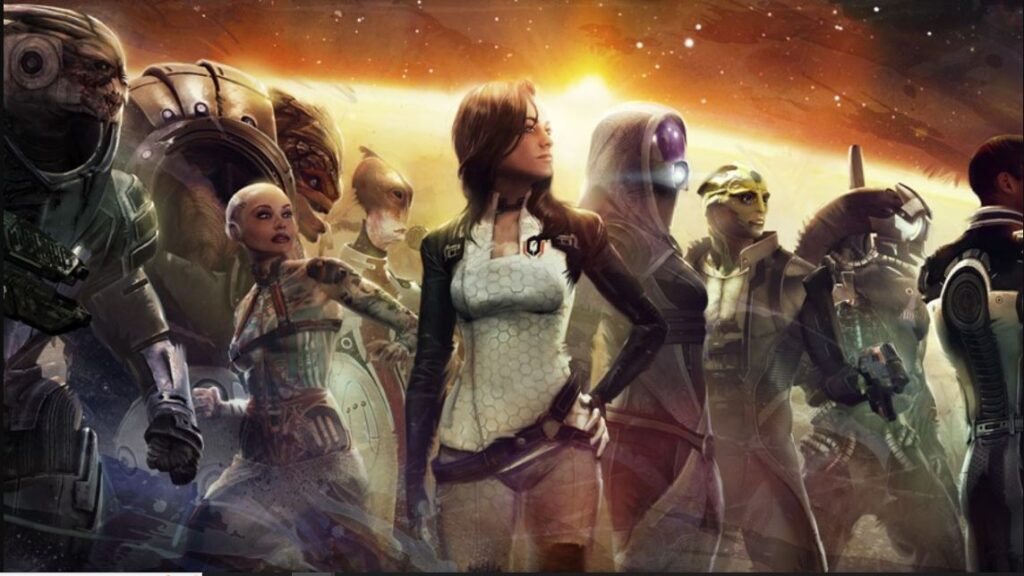
Conclusion
Many sequels, be it in film or video games, fall into the traps of changing too much or not enough in an attempt to recreate what worked in the past. Mass Effect 2 doesn’t fall into this trap as every change they made enriched the experience and improved the original in every way. True masterpieces stand the test of time and Mass Effect 2 does stand that test. Mass Effect 2 is a phenomenal shooter and role playing game and I recommend this masterpiece to everyone!
Patron Shout-Out
I wish to give special thanks to our patrons without the support of whom we couldn’t run this site, so thank you to each and every one of you:
Francesco
Lisa

